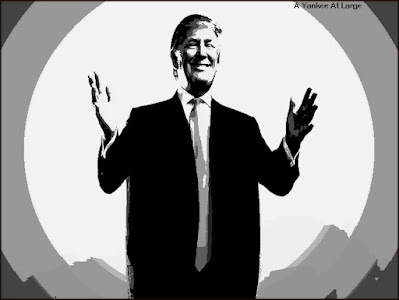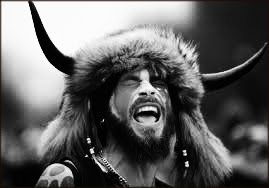More than forty-eight percent of Americans
who bothered to cast votes in the presidential election last Tuesday are in
varying stages of shock, mourning, anger and dismay. And yes, the US remains
pretty much a fifty-fifty country in terms of the split between those backing
Donald Trump and everyone else. This was clearly a punishment vote against
the Biden administration and in keeping with people’s perception (as opposed to
the actual fundamentals) of the economy. But it was also, I can’t help
thinking, about racism and sexism.
That said, this was obviously no ordinary
election between two normal everyday candidates with somewhat different points
of view about policy. This was, and remains, the most consequential election
since the Civil War, when democracy triumphed over sedition. Unfortunately, the
result is just the opposite this time. The candidate placed in charge by the
will of the majority is a man who violated the Constitution, sought to subvert
a former electoral process and refused to submit to a peaceful transfer of
power—for the first time in American history. Obviously, with the backing of a
hijacked Republican Party, he is now being rewarded for his consistently bad
behavior. And you can bet that these next four years will be even worse than
anything we have ever seen from him before. Be advised: It will cost democracy and
Americans dearly.
But perhaps democracy isn’t anything the
majority cares about any more. This was, unquestionably, a free, fair and
democratic election. But the result has placed a repeatedly confessed autocrat
in charge. So, maybe this will be the last free and fair election the United
States ever has.
Perhaps people just care more about the
price of gasoline and eggs than they do their inalienable rights. Maybe they
care more about controlling what other people do with their bodies and whom
they love than they do about guaranteeing individual rights (everyone else’s,
but, in the end, their own as well) and the sanctity of the rule of law. Maybe
they care more about their children’s “education” being based on their own
subjective “beliefs” than they do about their learning the proven facts and
science of how the world and the beings and systems in it function. And almost
certainly, it is more important to them to have a white male chauvinist in
charge, no matter how morally and ethically flawed he might be, than to embrace
the sexual and ethnic diversity that is, whether they like it or not, the
United States of America.
That said, each person votes his or her
conscience, or, perhaps, better said, his or her immediate to short-term
convenience, and that is the general idea behind representative democracy—even
when the outcome may well damage democracy beyond repair. What the majority
seems to have failed to do in this case is vote with the future of the US as we
know it in mind.
A survey run by the Associated Press seems
to bear this out. While six in ten of the one hundred twenty thousand people
surveyed indicated they were fearful of what Trump might do in a second term
with no guardrails, many of them said they were voting for him anyway. Indeed,
more than half indicated that, while they were hoping to keep drama to the
minimum, they were also bent on seeing substantial change in the way the
country was being governed. More telling still, three out of ten—not coincidentally, I
surmise, about the proportion of the population made up of Donald Trump’s most
fanatical cult-followers—said they were hoping to see “total upheaval” in the
way the country is run.
But from a strictly liberal independent
viewpoint, there’s a lot of accountability to go around for Tuesday’s
presidential election outcome. And here, I take full responsibility for the
theories that I’m about to posit. They are, indeed, mine, and the product of my
own critical thoughts and ponderings.
The person least to blame for this
election outcome is Kamala Harris.
The vice president did an astonishing job, in just one hundred seven days, of
galvanizing Democratic support, uniting left and center in the party, raising
record funding, exciting the Democratic base, choosing a vice presidential
candidate with wide popular appeal, and introducing herself to an American
public for whom she was a largely unknown figure. She also went on an
incredibly brief and inhumanly extenuating journey of both battleground and
other key states in order to carry her message of domestic peace and democracy directly
to the people. For any unprejudiced observer, it was hard not to see her performance
as nothing short of extraordinary. And hopefully she will not disappear from
the leadership of the party once her term in office ends.
The person most to blame for this
election outcome is Joe Biden.
From the outset, after snatching the primary from a highly competitive Independent, Bernie Sanders, Biden had said that he would be a transitional leader. And
yet, he failed to seize propitious opportunities to make it clear that he would
be a four-year president. Many in his party insisted that he was “the only
Democrat who could beat Trump” (again). In hindsight, that belief on their part
was exactly that, “a belief” with no real basis in fact, since, by the
midterms, his popularity was already languishing, and by shortly afterward,
very real concerns were arising about his physical fitness and his mental acuity.
The mid-terms, or slightly thereafter, would have been the time for him to
announce that he wouldn’t stand for another term, thus permitting the party to
run a primary race and establish a public consensus for choosing a candidate. I
blame both the party and First Lady Jill Biden for pushing him to go for
another term when both she and the party leadership couldn’t help but see,
early on, what became public knowledge during the president’s absolutely
disastrous performance in his only debate with Donald Trump.
But still, even after that, he dragged his
feet, hunkered down and refused to go until the party made it clear that he had
to, for the good of the movement. To his credit, he resigned the race with
patriotism and understanding. But it was too little, way too late.
The Democratic Party basically threw
Kamala Harris to the lions. Democratic
leaders sent her on a kamikaze mission, on which, it must be said, she did
incredibly well. Indeed, putting aside the perennial vagaries of a controversial Electoral College system, Harris has swept better than forty-eight percent of the popular vote with little left to report. This was true despite the inescapable handicap of being an
incumbent VP, who had to try to convince people that she was her own woman
without challenging the authority of her boss or disavowing any of his
policies. A VP with the character of a Donald Trump would have thrown the
president under the bus during such a campaign. It speaks very highly of her
ethics and respect for the office of the presidency that she refused to do that.
But apparently, in today’s world, ethics are a liability that costs one dearly.
Women and minorities must live with
the fact that they voted against their best interests.
Or didn’t vote at all.
Democrats and, in particular, Joe Biden, have generally done well with African
American voters. In Biden’s case, this is not only because of his career-long
work in the field of civil rights and justice, but also because he was vice
president to the country’s first black president—and one of its most popular
presidents in US history. Black voters were a big help to Biden in defeating Trump
in 2020.

But that trend didn’t carry over to this
race. At least not with men. Despite the fact that Kamala Harris would have
been the second black and first woman president of the United States, Trump
managed to double his support among African Americans this time around. It
appears that this was due, almost entirely, to young African American males
trending toward the so-called “bromance”—men’s preference for a flawed old
white guy over a woman, and especially a black woman—that the Trump campaign
enjoyed.
In other words, a large contingent of
black, and especially young black, men preferred to vote for an aging white man with questionable mental acuity, and with provable ties to and sentiments toward white nationalist and white
supremacist groups than to vote for a dynamic woman of color of a younger
generation who clearly had their best interests, their history, and their
struggles in mind. I can only conjecture that this is a question of sexism, the
choosing of a male, even against their better interests, over an empathic
female. Perhaps many of these black male voters (along with their fellow white
bromance voters) cast their ballots in a conscious effort to ensure that women,
their women, were not further empowered or inspired to greater militancy
in favor of women’s causes. Perhaps the Handmaid’s Tale nature of Trumpian
politics and its goal of very apparently disenfranchising women seemed
appealing to them. Indeed, they may well have liked the idea of “protecting”
women “whether they like it or not.”

But they weren’t the only ones voting against their better interests. Trump
made significant gains as well among Hispanic voters. Part of that was, of
course, based on fears fueled by the Trump campaign of a sharp swing toward the
left. A segment of Latino voters, made up of the Hispanic diaspora from
so-called “socialist” countries such as Cuba or Venezuela are vulnerable to
buzzwords like “socialist”, “communist”, “leftist”, etc. That’s understandable.
Their families suffered hunger, penury, prison and torture in countries
claiming to be socialist.
It is very hard—believe me, I’ve tried—to get
people from those origins to focus on the success of liberal politics throughout
the West. Theirs is a kneejerk reaction that knows no middle of the road. Left
is bad. Right is good. They often fail to understand, for obvious reasons, that
the Castros, Hugo Chávez and Nicolás Maduro were never socialists. They were
always totalitarians, dictators, despots who wrapped themselves in a red flag,
in the same way that other former Latin American strongmen like Paraguay’s
Alfredo Stroessner, Chile’s Augusto Pinochet or Argentina’s Jorge Rafael Videla
wrapped themselves in the flag of capitalism and Western Christianity. So those
folks are pretty much always a lost cause for Democrats.
But this time, Harris bled votes among
other Hispanic populations as well. And particularly among Hispanic males. Why
did so many Latinos break with the Democrats? A number of pundits seem bent on trying
to convince us that, “It’s the economy, stupid.” But having my own hands-on
half-century of insight into Latin America, I think it’s more than that. The
economy may be a factor, or at least an excuse. But I can’t help thinking that much
of the shift came when it became clear that the Democratic candidate would be a
woman. In other words, never underestimate the power of machismo among
Latin males.

Meanwhile, the “macho man” to whom they
lent their support is the same one who has referred repeatedly to Latin
Americans pejoratively—with the latest offense being a reference from his campaign (which he failed to chastise) to Puerto Rico as a “a floating island of garbage”. But this was nothing new.
Trump has long generally referred to Mexican migrants as “rapists, criminals and
drug traffickers”, and to Hispanic migrants in general as coming from “shithole
countries”, and as “poisoning the blood of our nation.”
Under his first administration, Hispanic migrant
families were separated at the border, children were caged and later put into
foster care in far-flung regions of the US. Significant numbers of those
children were simply lost by the administration, and even after being
deported, it took some of their desperate parents months to be reunited with
those kids.
Now, one of Trump’s major campaign
promises is that “from Day One” he will mount the “largest deportation operation
in the history of the United States.” The president-elect has vowed that he
will deport a million people—the great majority Hispanics. Experts say that to
reach that massive number, the next Trump administration will necessarily have
to go after people for whom Kamala Harris supported providing a path to
citizenship. That is to say, people who have long been established in the
Unites States and have been making a useful contribution to American society.
Among others, this would include the so-called “Dreamers”—people brought to the
US by their migrant parents when they were still infants or children, and who
have basically spent their entire lives in American society, but who never had
American citizenship or visas.
What a critical mass of Latinos for Trump
have voted for, then, are situations in which members of their communities,
their friends, their relatives, will face the tragedy of deportation, no matter
how long they have lived, worked and thrived in American society. Their votes
have given Trump a weapon that he will turn on people they know, people with
whom they share cultural and ethnic ties, even people they love.


Latinas, meanwhile, let her down. Although
Harris still got a traditional Democratic majority of Hispanic women’s votes,
she did so by about five percentage points fewer than Joe Biden did in 2020.
In such a consequential election for women’s rights and Latin American migrant
families, this outcome can only be seen as illogical and counterintuitive. Did
that sliver of Latinas simply join their male partners in defecting to Trump?
It seems likely, but we’ll never know.

Blame must also be laid at the door of
women who, at least in such a consequential election for their own interests,
simply didn’t get off their couch and go vote. In what is a decidedly apathetic
electorate, in which a sixty-six percent turnout is considered “a great success”,
if non-voting women were ever going to vote, this should have been the year.
Well, in this election, roughly ninety-nine million potential voters just couldn’t be bothered—even when absentee and mail-in
voting makes it possible to cast a ballot from the comfort of one’s own home. Of
those, it’s safe to say that roughly half were women. And, logically, half of
those were very likely liberal-leaning, if not potential Democrats. That means
there were probably well more than twenty million Democratic women’s votes that were
withheld. Even a fraction of those would have provided for the razor-close race
the US was supposed to have had. Half might well have handed Kamala Harris a
resounding victory despite the Electoral College. But those women simply could not be bothered to do their
part.


But these haven’t been the only occasions
on which he has shown his contempt for women. Among other things, he has said:
-
“If Hillary Clinton can’t
satisfy her husband what makes her think she can satisfy America.”
-
To a female contestant on
his show, Celebrity Apprentice, three years before he took office, “It must be a pretty picture, you dropping to
your knees.”
- Of himself, "All of the women on The
Apprentice flirted with me — consciously or unconsciously.”
-
Of then-Fox anchor Megyn Kelly
when she was a debate moderator and took him to task, “You could see there was
blood coming out of her eyes. Blood coming out of her wherever.”
-
Of his 2015 Republican primary rival
Carly Fiorina, “Look at that face! Would anyone vote for that? Can you imagine
that, the face of our next president? I mean, she’s a woman, and I’m not supposed
to say bad things, but really, folks, come on. Are we serious?”
-
And once again, to shock-jock Howard Stern, “A person who’s flat-chested is very hard to be 'a ten', OK?”
This is the man who packed the Supreme
Court with radical right-wing justices strategically placed there to overturn a
half-century-old legal precedent that gave women control over their own bodies and their reproduction rights, and got the government out of their bedrooms and marriages. A man whose own
wife regularly refuses to appear in public with him. This is the man women
voted for over a female candidate with nothing but empathy for their struggle
and their causes, one who had promised to fight for them against a far-right plan
(Project 2025) to introduce a process that defies the bounds of dystopian
fiction.
All I can say is, congratulations! If Trumpian
women’s goal was to place their own basic interests directly in harm’s way, you
couldn’t have chosen better.






















